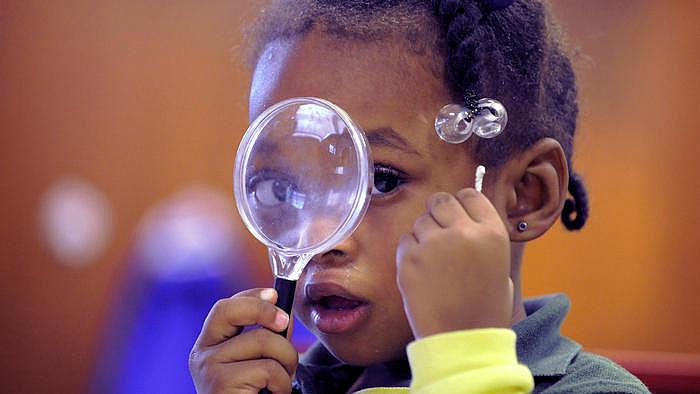Moving families to combat aftermath of violence
For more than a year, Baltimore Sun reporter Andrea K. McDaniels and photographer Lloyd Fox have examined the unseen impact of violence — on children, caregivers and victims’ relatives. McDaniels wrote the articles while participating in the 2014 National Health Journalism Fellowship, a program of the USC Annenberg School for Communication and Journalism.
Other parts in the series include:
Collateral Damage: Advocates aim to save Baltimore children from impact of violence
Collateral Damage: Families struggle to care for victims of violence
Collateral Damage: Relatives of Baltimore murder victims struggle with grief
More must be done to address aftermath of city violence, advocates say

Lloyd Fox / Baltimore Sun Klay Reed is a preschooler at Little Flowers Child Development Center.
Surveys conducted by the ACLU of Maryland are finding that one way to offset the hidden health consequences of violence is to move families out of troubled neighborhoods.
Findings by the American Civil Liberties Union say that getting kids away from the stress is also a solution.
The ACLU is in the process of surveying families that it helped move out of poor, violent Baltimore neighborhoods as part of a program launched in 2003 after a housing discrimination lawsuit against the U.S. Department of Housing and Urban Development. Officials expect to serve up to 4,400 families by 2018.
Since moving, the parents said they feel less stressed and are more hopeful and motivated.
"I think moving saved my family's lives," one parent wrote.
Barbara Samuels, director of the Fair Housing Project at the ACLU, argued in a recent essay in the publication Poverty and Race that more public policy should look at moving kids out of bad environments.
"If we can offer families a real chance to get their children out of harm's way by moving to areas with better schools and health outcomes, how can we fail to act?" she asked.
This article was originally published by The Baltimore Sun

